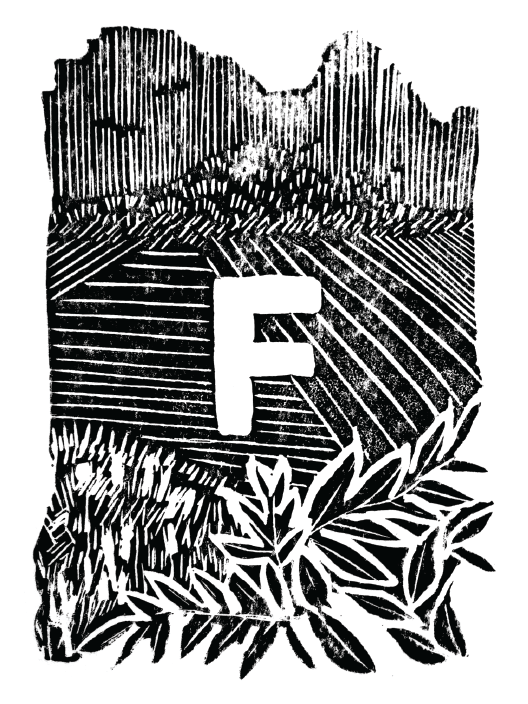Country Fare: 01
Nose-to-tail, Michelin stars, regional, fusion, craft — “gastropub” first entered the English lexicon in the early 1990s in an ongoing evolution of the patriotic, stalwart pub. Since March this year however, for the first time in Britain’s history, pubs nationwide have been closed until further notice, their absence perhaps most sharply observed in small towns and villages where a sole “local” is also typically family-run. Here in our first issue of Country Fare we meet Steven Ellis and Steven Smith, two chefs behind some of England’s most cherished countryside gastropubs. They shared stories with us last summer 2019, prior to the global pandemic, and recently offered words about how the lockdown has impacted their industry and businesses.
Words below by Steven E and Steven S,
with a brief history by The History Press.
Steven Ellis, chef-proprietor
Old Windsor, Berkshire
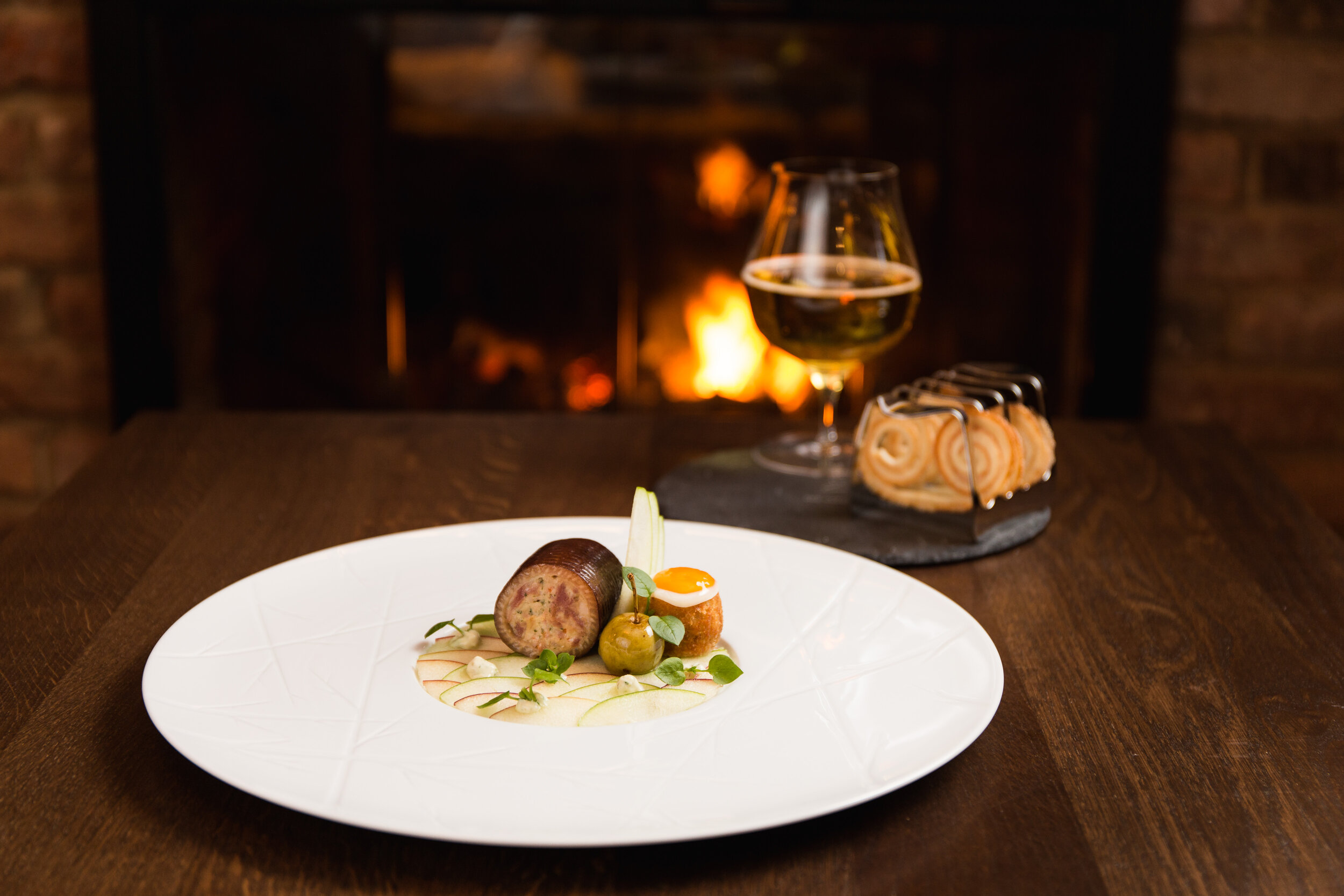
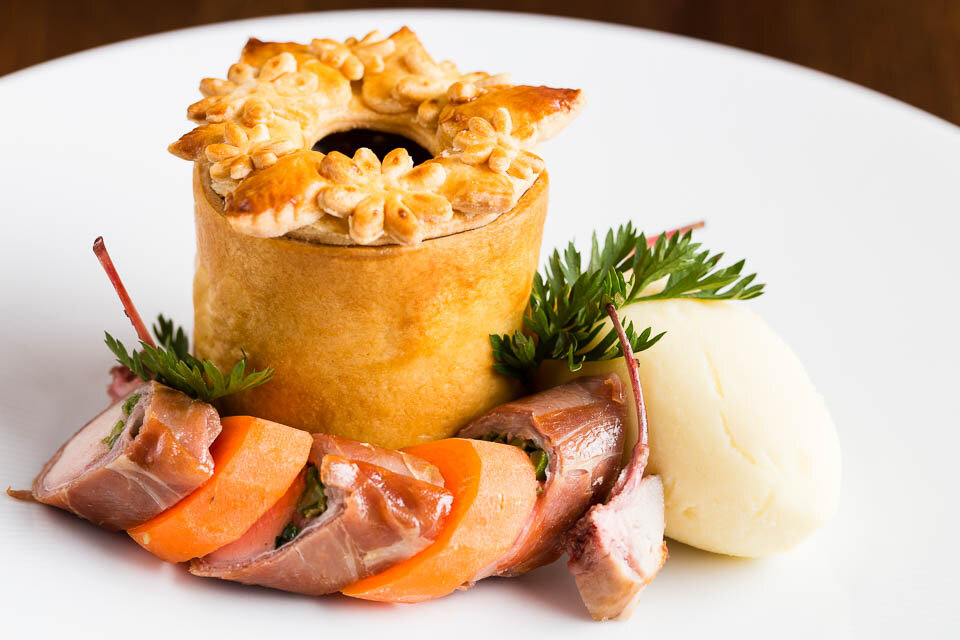
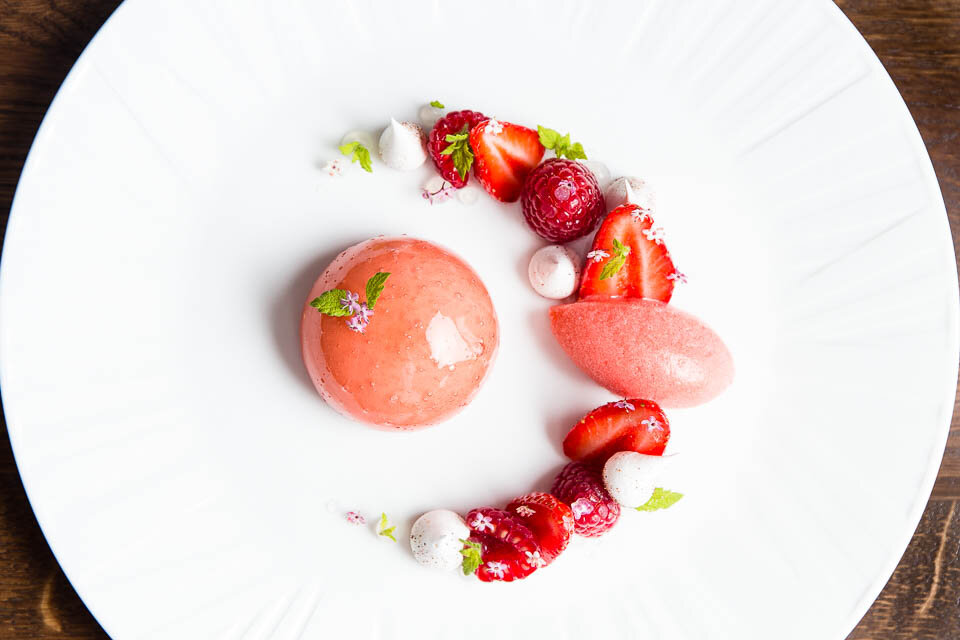
Our evolution: An officer named Thomas Evans was gifted these two gamekeeper’s cottages in 1837 for protecting one of the British Generals in the Battle of Waterloo. He nicknamed it the ‘Oxford Blue’ after the Royal Horseguards. From what I gather, it had been very well-run pub in the 1990s owned by a family in the village. Then from about 2000, it was sold to a brewery and had been on a slow depression for 14 years. By the time I bought the pub four years ago, it was very run-down and needed a lot of work! But there was something about the area.
I was born in North England, grew up in the Middle East, and went to work in London when I was 16, spending time at Jamie Oliver’s for a little bit then for Gordon Ramsay’s Chelsea flagship for six and a half years. During that time, I also took a year out and went to The Star Inn on the North Yorkshire Moors — one of the first pubs to get a star. That is where I met my wife and where I really fell in love with game. For me, game is nature at its best. No one tampers with it, the animals do what they want when they want. When it comes time to cull and slaughter them, if it’s done by a proper gamekeeper, it’s no stress — it’s shot respectfully, it has had a great life. Then as a chef you do it justice by preparing it properly and using everything, then serving it to your guests. That whole process amazed me.
I had always had it in mind that, eventually, I would want to take what I had learned from London — the fine-dining-esque of Gordon Ramsay and that level of service — and put it in a country pub. My business partner at the time lived in Ascott, so when he said, ‘Why don’t you come to Windsor and have a look?’ I thought, ‘Yeah. Ok, let’s go and have a look then.’ And we found this place. The position is amazing; it overlooks the Windsor Great Park and all the farmland. When this building was getting refurbished, one day I went to the pub next door and, by chance, bumped into the head gamekeeper for the Park, and we got chatting. He started asking me about my ideas for The Oxford Blue, and from there we have built an ongoing relationship and he’s become a good friend. We work very closely and I have learned a lot. He said to me, ‘People don’t know how to prepare the meat. The deer they get in London are typically big stags from the highlands of Scotland that should really only be used for stewing meat.’ He looks after all the wildlife on the Park, and he can tell just by looking at their physique and interactions, which deer are going to survive the season, so he culls them at a younger age. And people think, ‘Oh it’s cruel.’ But it’s not. Gamekeepers and farmers, behind-the-scenes, are not doing it because it’s fun; they are doing it because they are maintaining land and trying to grow crops to sell the people in the city and around the world.
“For me, game is nature at its best. No one tampers with it, the animals do what they want when they want … Then as a chef you do it justice by preparing it properly and using everything.”
From the beginning I had always wanted to do game, but I was very worried that if I did too much it would stop people from coming. In medieval times, a deer was shot during rut season for its trophy antlers. What they didn’t realise was that the flavour of the meat was tainted with testosterone, so that is where this idea of very strong, ‘gamy’ tasting meats came about. The gamekeeper gave some red deer to me and it was like butter; I had never had it like that before. Things like these make me think, ‘Wow. This is amazing. People just do not know about this.’ Many people also believe that you can only get game from October to January, that’s it — but game is all year round. There are so many species of deer: red deer run from October until end of January, then muntjac run from February through October, then roe deer starts about early June. Pigeon (before the ban) you could get all year. There are rabbits. There are game birds that I hadn’t heard of before like the golden plover; I had read about it but never dealt with it, its flight path comes over Windsor from France and some of these birds go to the Queen, but on the odd occasion where she doesn’t want it they offer it to me and I wasn’t going to say no! There is another game bird called a shoveler, which is a duck that hovers on the base of the river, sort of like a flat fish. It eats all the insects on the bottom of the river, so it has more of a fishy duck flavour because of what it eats.
Looking at all the restaurants around here, I don’t see any that specialise just in game. During game season everyone does a bit of game, but there are not enough places doing enough things — there is so much more. We have an abundance of species.
We are coming into our third year now. Until recently, we had a typical mixed menu but I have recently changed quite a lot in management and in the structure of the pub. I said to my business partner, ‘I’m probably going to take flack at the start but I want to focus purely on game,’ and I have now plucked up the courage to run with it.
Our location: As a business, there have been ups and downs. There have been times when we have struggled with staffing and getting people to come and see what we are about, especially at the beginning. The pub is located on a back, countryside road leading out to surrounding little towns. Old Windsor is a five-minute drive from Windsor Town Centre so you need to know about us to come to us. I have found word of mouth to be a very strong tool. And it’s not just about the food. It’s really important to offer the whole experience for our guests. All the little things.
From a food perspective, the produce we get on offer here — you can’t even get that in London. And if you were to get it in London it would cost a fortune. I love that I have Windsor Great Park right on my doorstep. They have just created a vineyard there, so we are getting the Queen’s sparkling wine as our house pouring wine. Having this opportunity to work with such phenomenal produce, especially with something I am so passionate about — it’s heaven. It’s perfect for me. I could not ask for anything more.
I really thought I would miss the city, but I went there on Sunday to see a friend at my old restaurant and when we drove in I realised, ‘I don’t actually miss this.’ I like to visit and see my friends, but could I go back and live there again? I don’t think so. I really love where I am. The peace and quiet, the surrounding areas. It’s a better way of life for me. We now live on the Park in a forest ten minutes away from the pub. I’m quite addicted to what I do, and my wife knew that if I lived above the pub I would never get away from it. Now I realise you do need to get away. I spend all my days there so I need to step away, refresh, think about things, go for a walk, clear my head, relax.
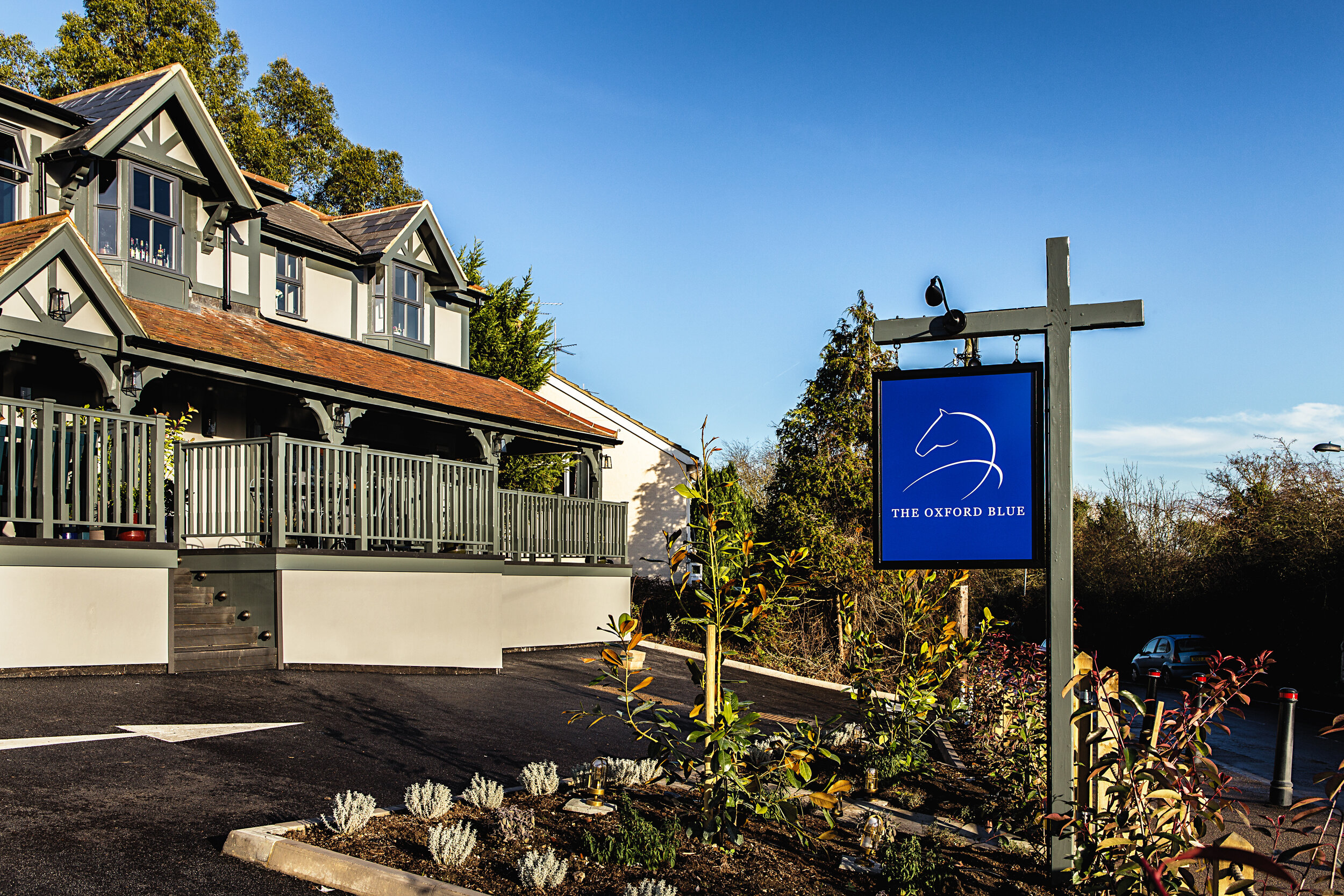
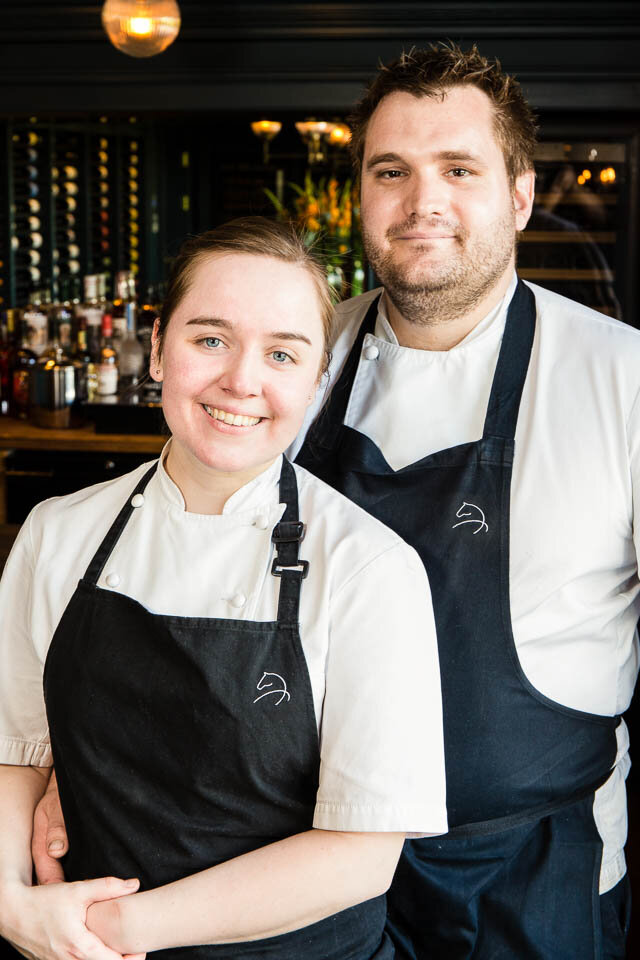
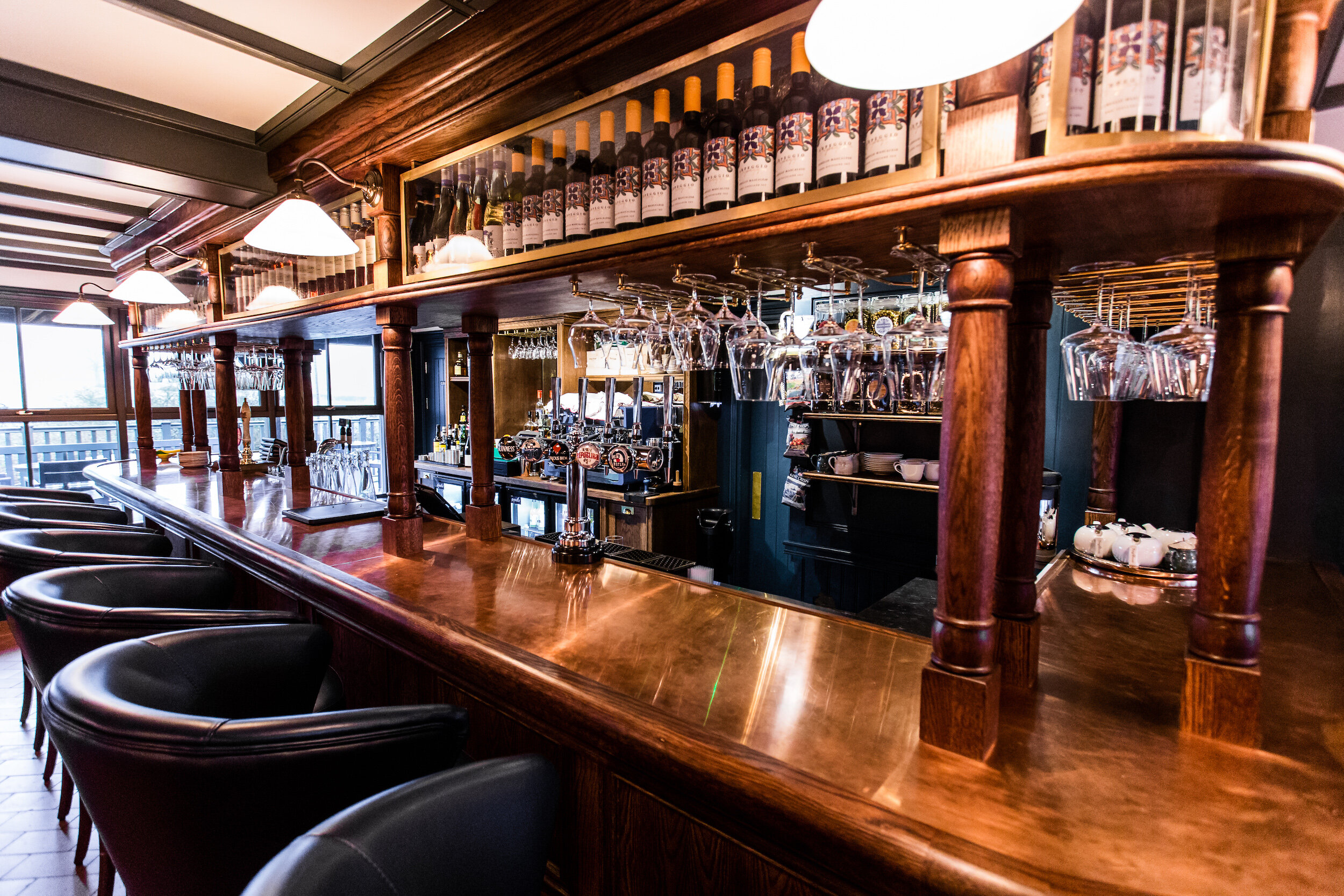
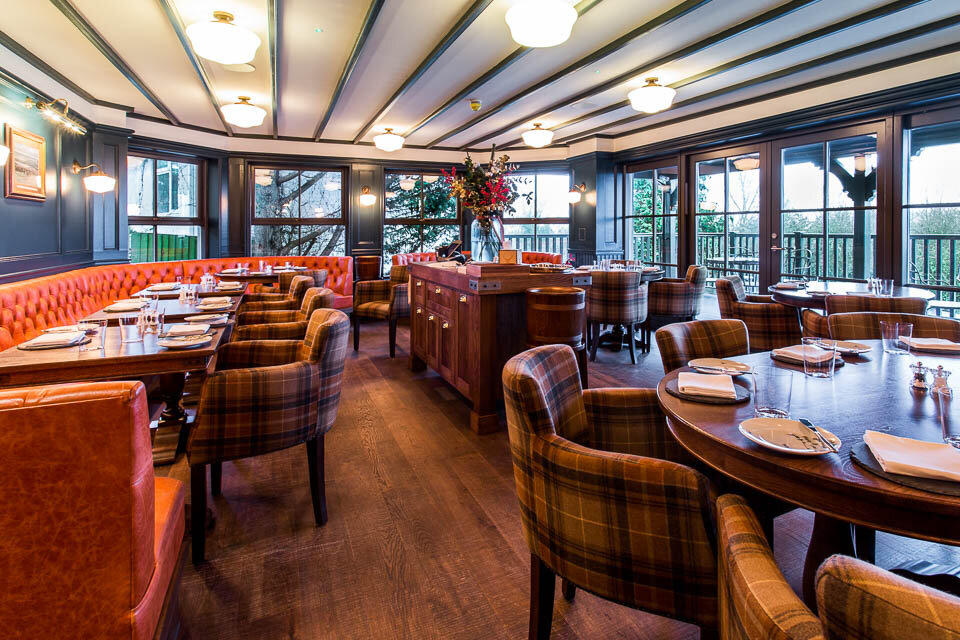
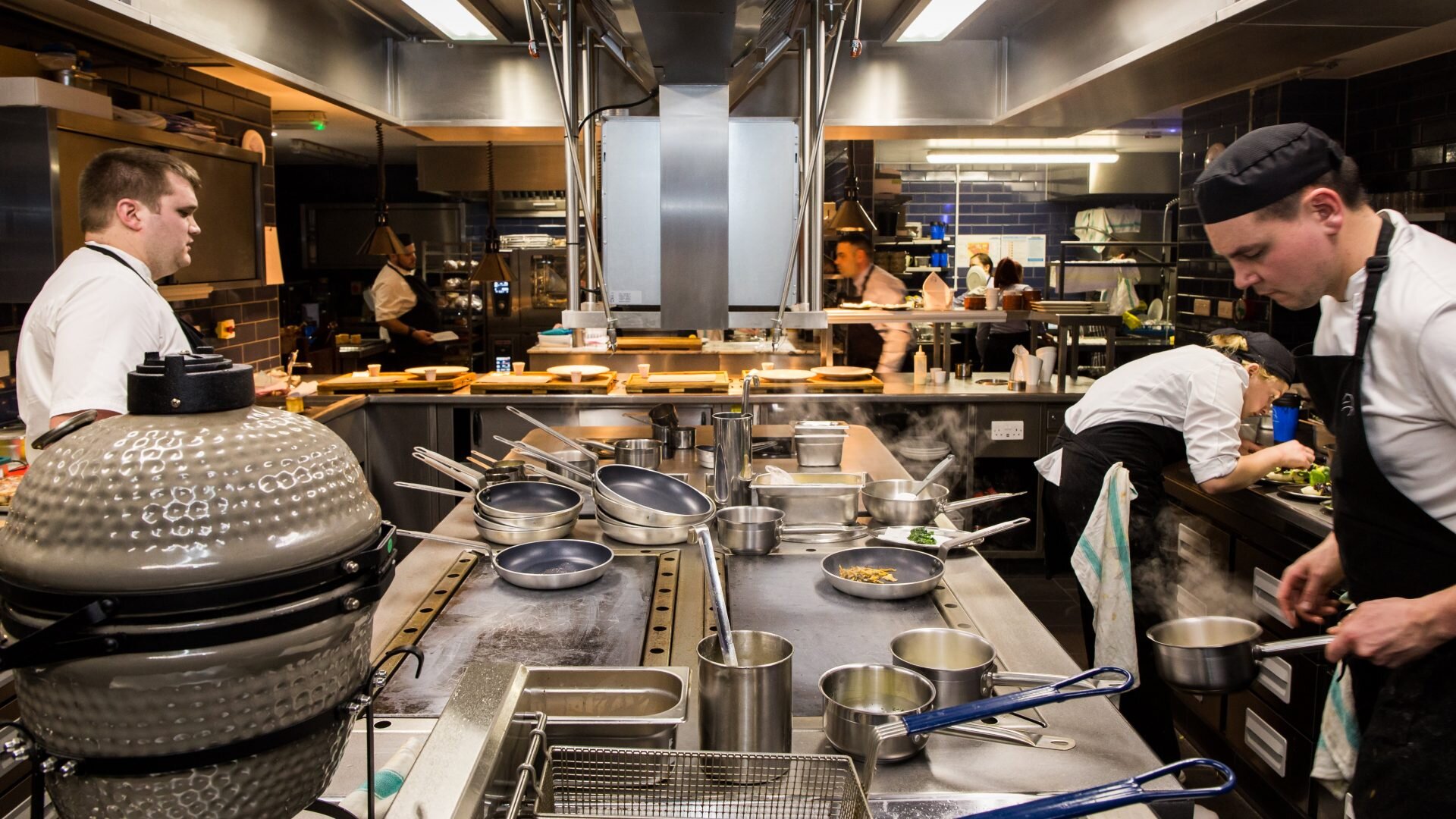
The industry: People today are a lot more aware and interested in how and where their food comes from, how it gets from A to B. Factory farmed, slaughtered, and brought to their table. Mass fishing. Food wastage. Plastic. We are destroying the earth. We really need to utilise what we’ve got. In England especially, many people look for a bargain, but you go to places like France or Italy — or anywhere else, really, where food is a way of life — and people appreciate the efforts that have gone into a meal and don’t question it. Whereas in England, the introduction of TV dinners and fast food through the 1970s and 1980s have caused people to believe that everything should be cheap, and that anything expensive is not worth it. It’s not the right way to look at it, but that’s what has happened. But that’s another reason I want to get game on our menu — it can also help me to reduce my prices. It can be a win-win for everyone. I want to show people that everything can be used. Not just the loins, breasts, or thighs, but also the heart, kidneys, lungs — the whole animal. A handful of great chefs have been shouting about nose-to-tail for some time now, because we have become detached from that. Through the years it’s all become gory and not nice, but we really should be using everything. You can put a bit of love and care into it, with some imagination, and create something inexpensive and really tasty. We are not reinventing the wheel. People might cringe at it but — things like using the head. You can, for example, braise the deer head, use the cheeks, and serve it almost like a katsu sandwich. Make it with a homemade barbecue-style sauce, pané it as a single piece, put into a sandwich with a chilli sauce. You can use the eyes to make crisps. You can use the brain in certain areas. We have also taken deer antlers to make steak knives out of them, we have taken and treated the skins and have put them up around the pub for atmosphere. So, all that you see here have come from the same animal.
With Brexit, while people tend to focus on the negatives, there are also a lot of positives. For me as a chef, it’s a positive. It can force the country to use more of its own supplies — a lot of our supplies are game and we aren’t using enough of it. I think more people need to shout about it. I reckon even for food banks and others, many problems could be solved by teaching people how to use a pigeon, a mallard, a pheasant. For me, there’s no difference between a pheasant and a chicken. A pheasant is like a wild chicken. Last year alone, tons upon tons of pheasants were burned because no one used them. No one bought them. It’s mad. More people need to use our own produce. Then we can become more sustainable.
My favourite…
Dish from our menu: One of them was similar to a tomahawk steak, but a bit smaller. I used fallow deer because it has more fat. It’s a wild deer that was in season. We took the short rib of the deer, slowly confit it in beef fat then smoked it. I have also been working on deer bone marrow, rather than beef bone marrow — they are really good with chips and sauce Choron (sort of like a Béarnaise sauce). It’s steak and chips but with deer, basically. I want to create food that people can relate to, with a familiar identity, like venison scotched egg or rabbit porchetta.
Chefs: Marco Pierre White, I have always admired him. His inner drive. Before he became famous, if a dish didn’t work, he re-did it again and again. And at the time, there weren’t many British chefs championing England’s cuisine and he did. Another chef I really like is my old boss, Clare Smyth. Her look on life and philosophy in the kitchen were very different from a male-orientated kitchen. Back in the day, there were very few females who would work in the kitchen, and if there were they would be working in pastry or something. She taught me that food doesn’t have to be a very complicated thing. It’s about simple food brought to the table.
Local spot: Virginia Water, a lake in the middle of Windsor Great Park.
“We have had to evolve and change our style to fit the circumstances of the times.”
Adjustments since COVID-19: These are very uneasy times. Sadly we had to close our business and to make our staff redundant, initially. Within 24 hours of Boris Johnson urging everyone to avoid pubs and restaurants, reservations started going crazy with loads of cancellations. It decimated them. We came in on the Wednesday and what should have been 20 for lunch and 40 for dinner ended up being none for lunch and 5 for dinner. That repeated for the rest of the week. We realised there would be no point in trying to carry on the next week. There was no other way around it.
We are really lucky in this country to be able to get the support; we have since been able to re-hire the staff and put them on the furlough system.
I think hospitality has been hit the hardest and it’s going to be the last to open, and the transition to re-open is going to be very difficult due to the uncertainty. They have said that this could be around for a few years and they won’t have a vaccine anytime soon. The government hasn’t been very precise; it has all been very mixed — mixed emotions, mixed communications.
We are not going to open this year. My wife and I have decided to start up a new company, an e-business called ‘Oxford Blue at Home.’ It will be luxury hampers and possibly takeaway and box-set menus for breakfast, afternoon tea, lunches, dinners. We will prepare most of the meal and provide a booklet with methods, and tips on the way we would present it. We can't continue to do the food that we were doing at The Oxford Blue before, because it had been about the experience, service, and everything that came with it. Now we are trying to sell to a much broader, wider market by doing homely comfort food. To do something as unique as ‘game only’ would narrow our chances massively. We have had to evolve and change our style to fit the circumstances of the times. For instance we have been trialling a barbecue hamper that has gone down really well with our customers; we bake the brioche buns and include things like bourbon sauce, pickles, beef steaks with marinades, and as an option our venison sausages or burgers, or rabbit chorizo. We are going to start it locally this week, in and around Berkshire, and if it goes well we may look into offering these nationally. As long as this works in our favour, we are going to run it until the end of the year. I just don’t see the point in fully opening our restaurant. Our dining room isn’t that big, so if we lose 50% of our business this year, it would not generate enough money to pay for rent, utilities — it just wouldn’t work for us. We would create more damage in rushing to open than if we focus on the hampers and running this new e-business until we feel ready — if we sit back, wait, and look at the situation, instead of going in there blindly. I’m hoping these hampers will go really well, and we can run with that from there. You have to try and find the positives. For me, for the first time in four years my wife and I actually have time to spend together, and we have been able to live in our own house which we never really had time to live in before. And everyone is trying to work together, to get the best out of it. We will, slowly but surely, when we see it’s right, re-open the pub.
Steven Smith, chef-proprietor
Wiswell, Lancashire
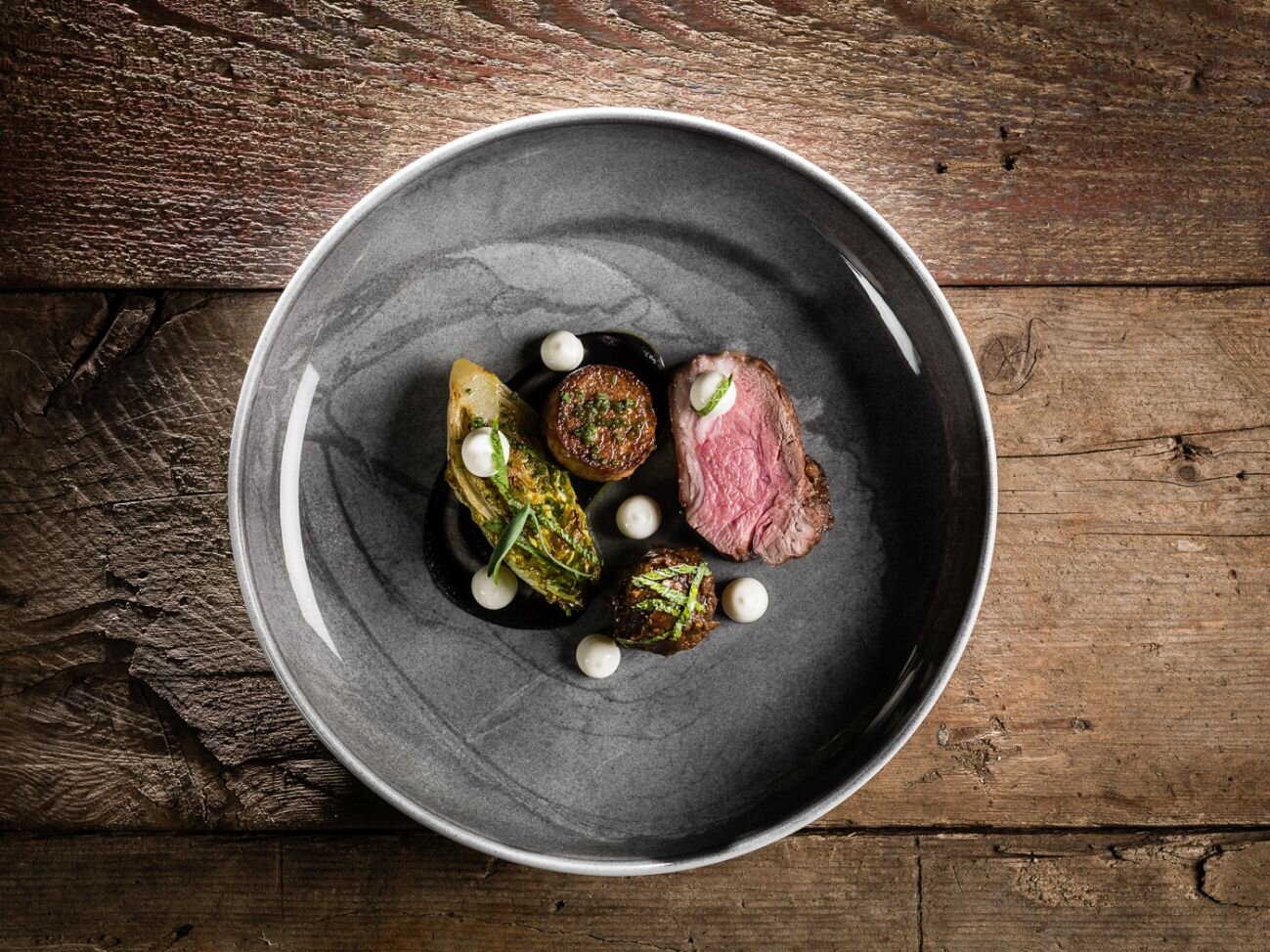
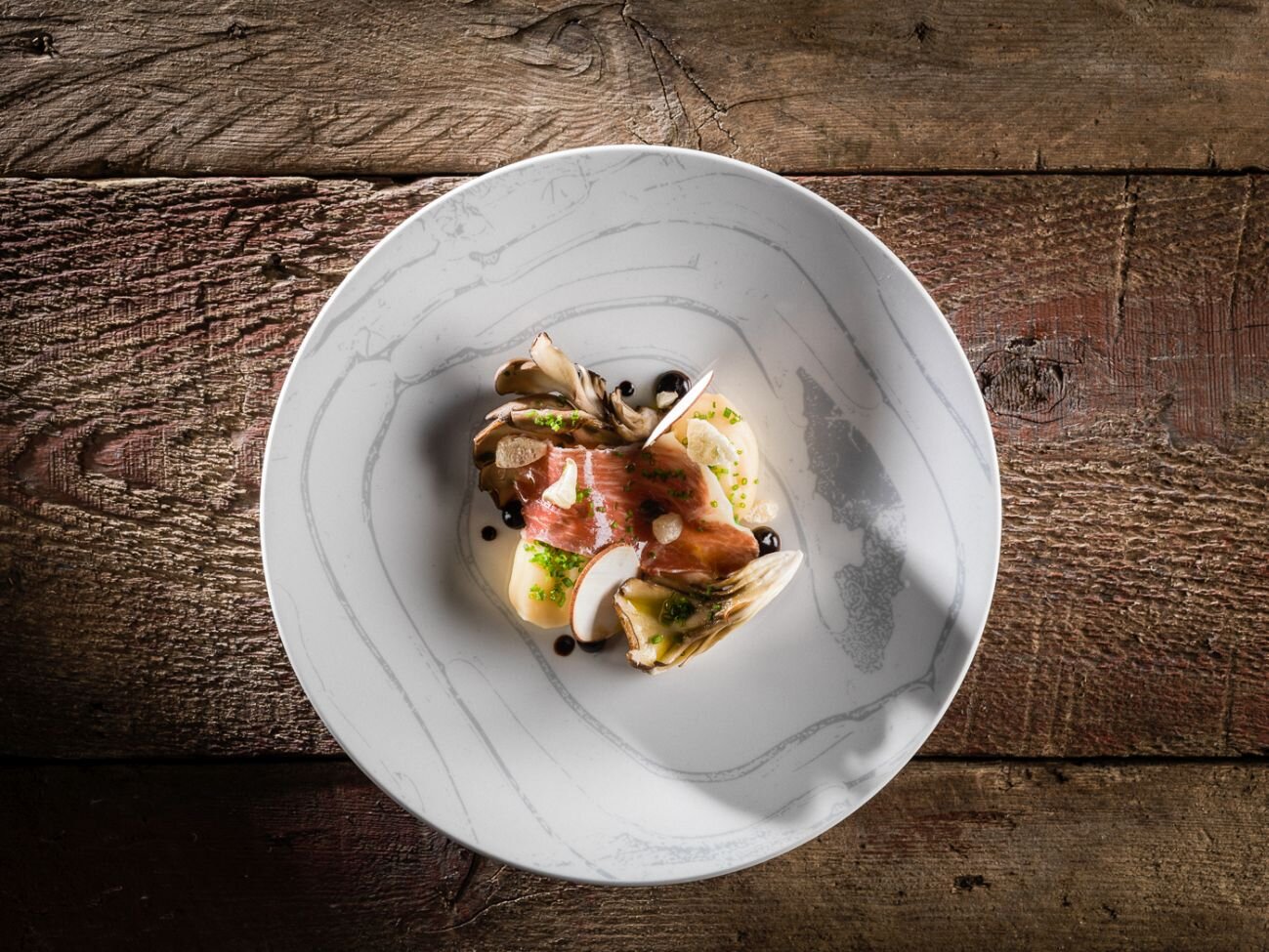
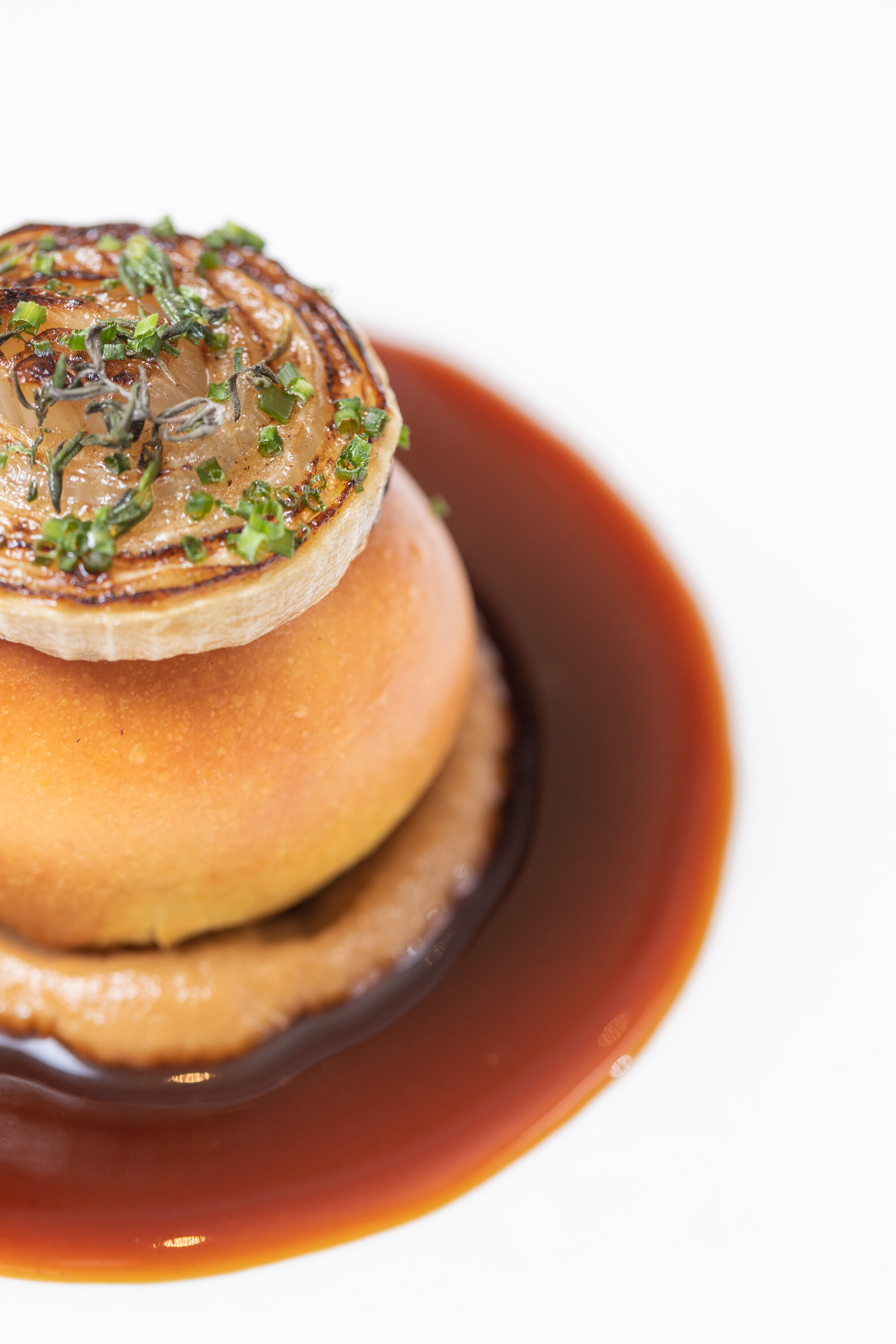
Our evolution: I’m from Blackburn originally so I’m a local lad through and through. I trained at Blackburn College and worked at a number of local restaurants before taking on The Freemasons in 2009. I had been thinking of doing something on my own for some time and, whilst working at Stanley House, I became friendly with one of the customers who really liked my style of cooking. He invested alongside me in The Freemasons and, 10 years later, he is still my silent partner. When we first took over, it was a stereotypical rural pub in a lovely location, serving old-school food, with a very loyal local following. We wanted to mix things up and change the menus to create a real gastronomic experience, but we also wanted to keep a number of traditional pub classics on the menu; we didn’t want to alienate the local community at all and, most importantly, we still wanted The Freemasons to very much be a pub, where you can come and enjoy steak or fish and chips and an excellent Sunday roast.
We started off with a refresh of the pub’s interiors and, just this year, we have extended the kitchen to create a kitchen bench where guests are in the heart of the kitchen and the heat of the action, so to speak! We have also created ‘Mr Smith’s’: a unique room which can be utilised for any manner of occasions, from tasting menus to special occasions to get-togethers. We are really excited about Mr Smith’s as we feel it sets us apart from the competition; there isn’t anyone offering this kind of experience, that we are aware of, and we are really encouraging guests to work with us to create something truly special. We are also opening up eight luxury bedrooms, which will give people who live further away the chance to come and dine with us and make a full night of it.
The menu has evolved as well: from being a very traditional pub, we have created a menu which fuses the best ingredients and flavours from all over the globe — a fusion that has really created a gastronomic experience. While the majority of our menu focuses on British cuisine, it also takes inspiration from Asia, America, and beyond. We are constantly looking at ways to tweak the menu, improve on dishes, and add new ones to the mix.
“The culture surrounding food has changed immensely, but it’s not just in rural locations — it’s everywhere. People are much more knowledgeable about cuisine, they have high expectations and, when they travel to dine with you, it’s essential to meet those expectations.”
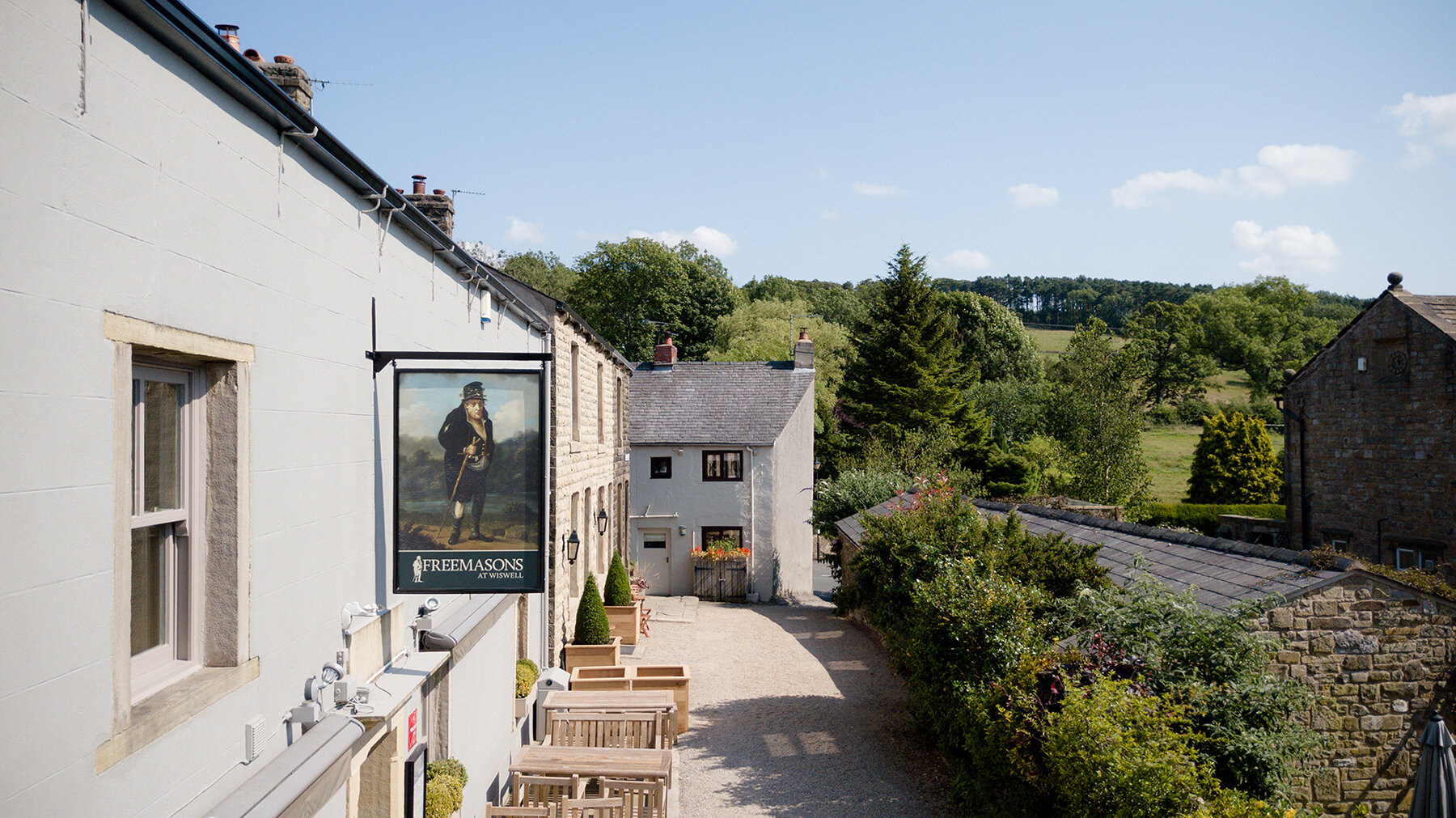
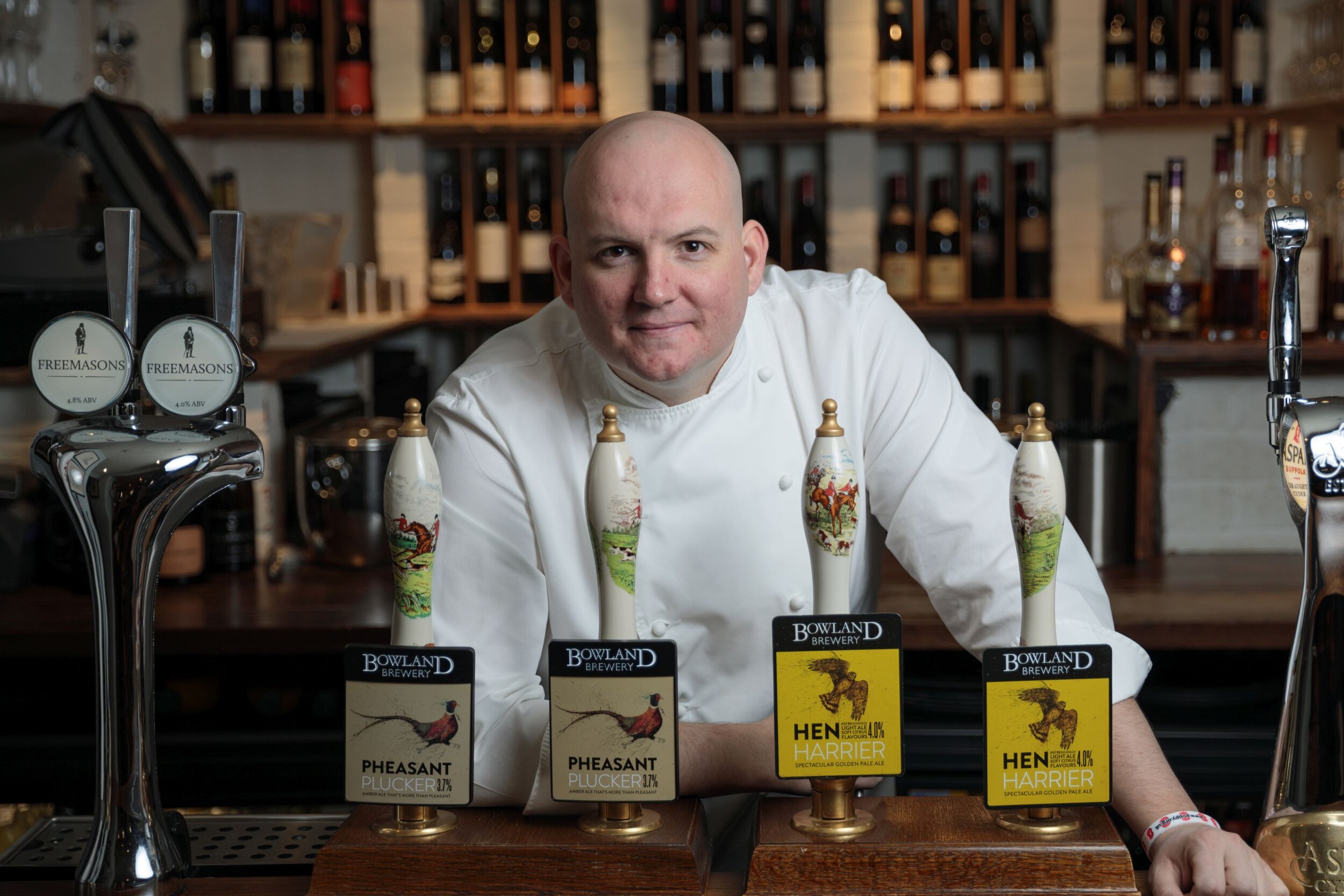
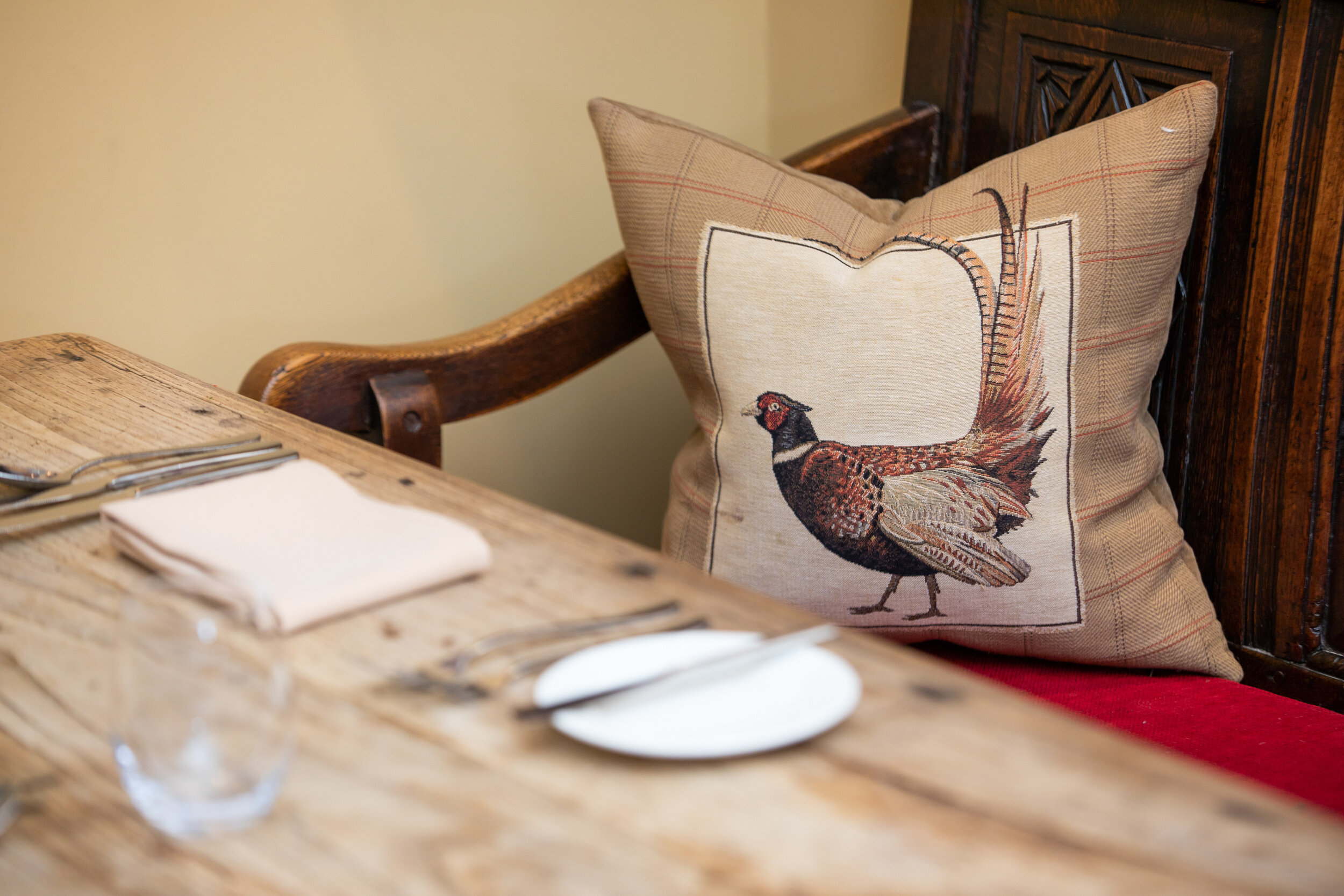
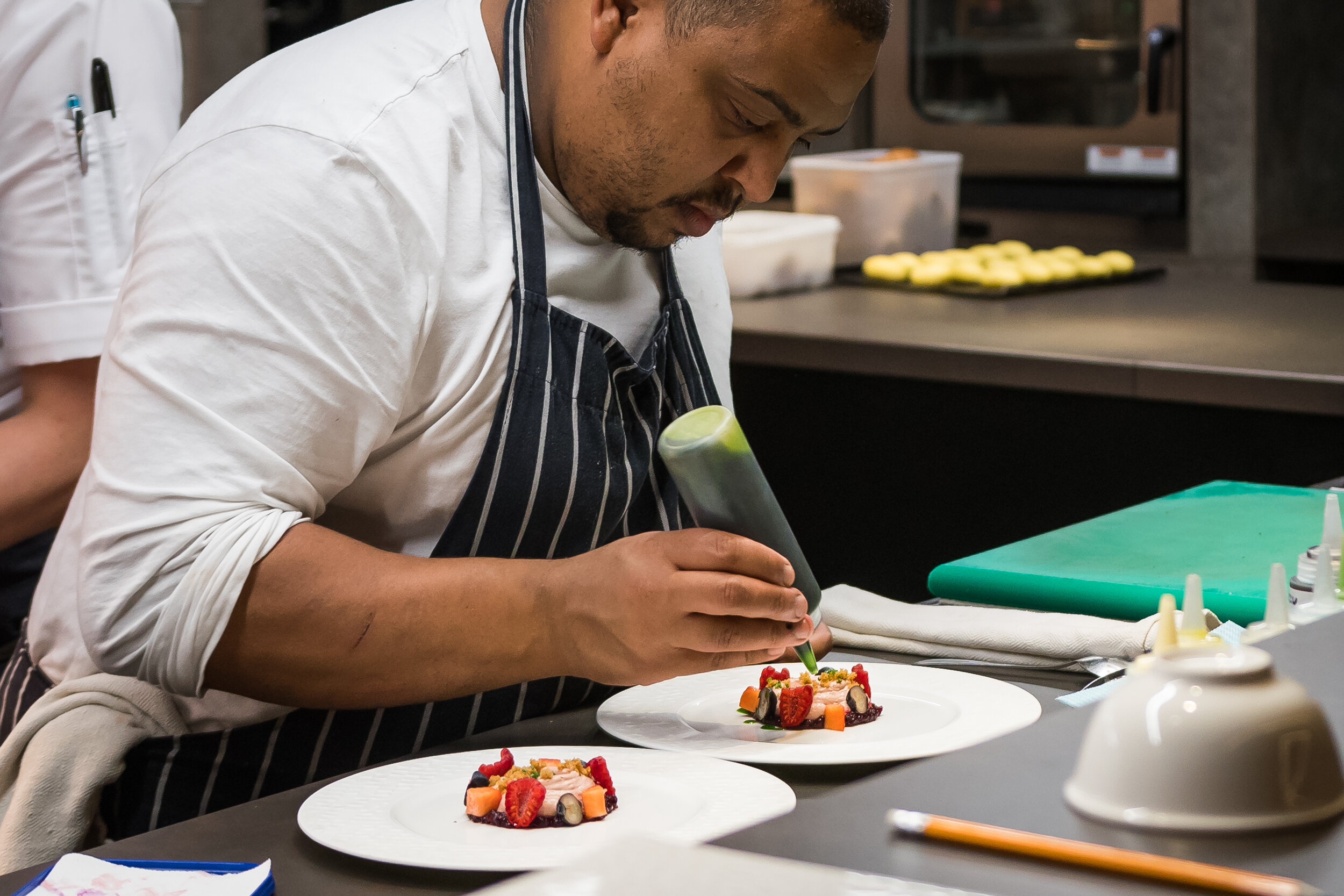
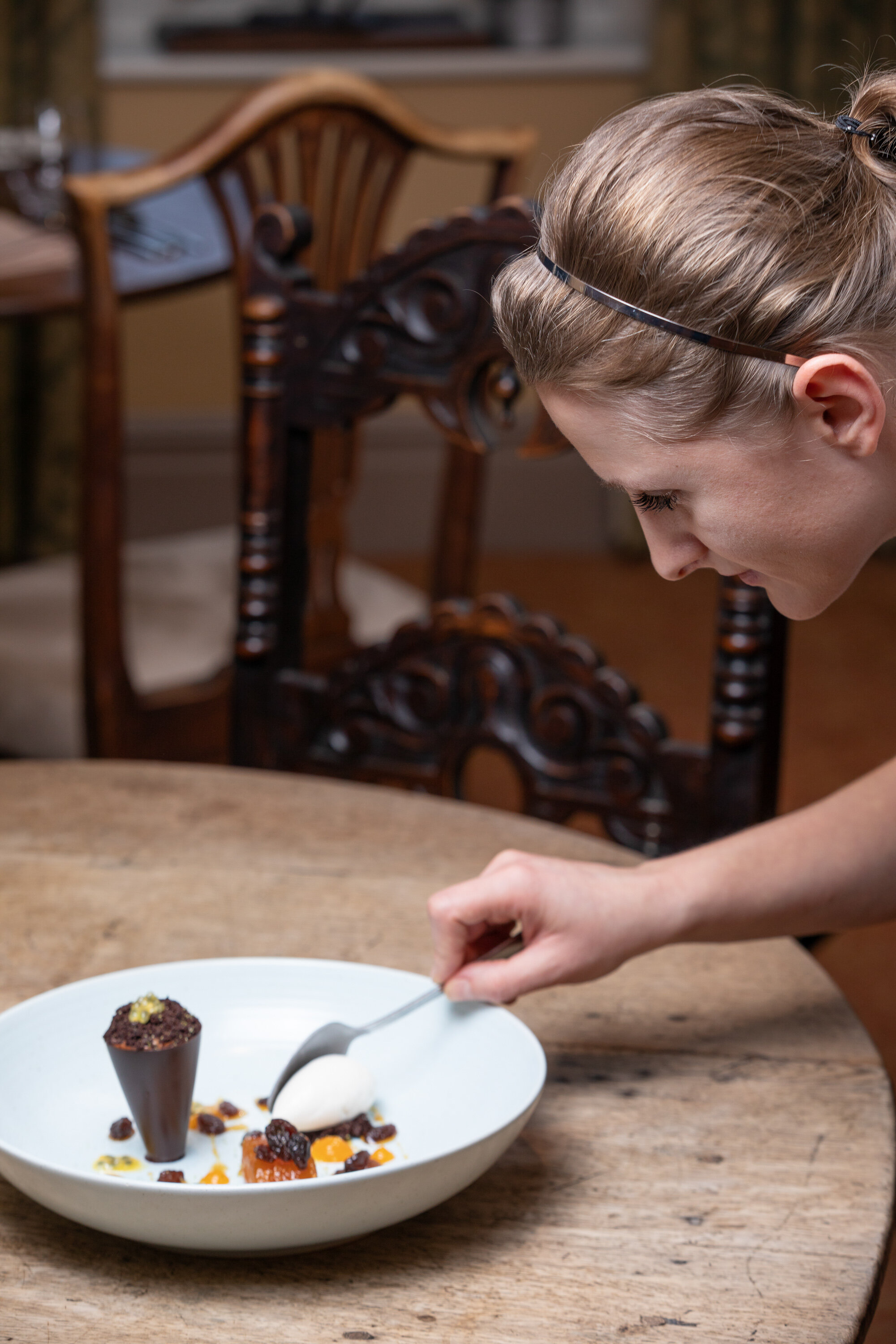
Our location: The Ribble Valley is a beautiful location and provides so much inspiration for our menus. We work with some fantastic local producers, we love having regulars — that is one of the best things about a rural pub — and we love having new customers who may have travelled a couple of hours just to dine with us. That combination makes it incredibly rewarding. But, being in a rural location, you have to work much harder to drive people to visit. Because there is lower footfall, you can’t afford to offer a substandard experience. Everything you do has to be spot-on — but that is how it should be! If you create a truly unique offering then you can become a destination in your own right, and that rural location becomes part-and-parcel of the appeal and experience. Being a rural pub, there is also a real warmth when you arrive that you might not experience in a city-centre; but within the informal, inviting atmosphere, we offer a genuinely exciting menu and we love offering that to our guests — the complete experience from the moment you walk through the door to the moment you leave. I don’t think our location has held us back, it’s very much a part of who we are and what we are about. I love where I live and I’m immensely proud of what we have created at The Freemasons.
The industry: The culture surrounding food has changed immensely, but it’s not just in rural locations, it’s everywhere. People are much more knowledgeable about cuisine, they have high expectations and, when they travel to dine with you, it’s essential to meet those expectations. People still love to dine-out but they have so much choice these days, you have to be able to offer something different to keep your regular and new customers coming through the doors. The hospitality scene is fast-moving, dynamic, and there is constant flux. I have seen a lot of operators come and go, while others are absolutely flying. I think it will continue to operate in the same way for some time — we will reach saturation points at various times, and those who aren’t running a tight ship might go under. At the end of the day, if you have a good product, change your menus regularly, and keep shouting about what you are doing, you will do ok.
My favourite…
Cookbook: White Heat by Marco Pierre White.
Flavour combination: Rich meats and fruits.
Local spot: Yu at Copster Green
“We have seen a true outpouring of support from our fellow pub owners and members of the public.”
Adjustments since COVID-19: These last few months have undoubtedly been the most difficult the industry has ever faced. We have seen a true outpouring of support from our fellow pub owners and members of the public, which truly demonstrates that the pub really does play an integral role within the community. When we are finally given the go-ahead to open our doors, please do support your local pubs — even if it’s just to drop in and say hello, order a pint at the bar, a quick bite, or a full sit-down meal. It will mean the world to us all.
B R I T I S H P U B N A M E S
a brief history
by The History Press
Walk down any British high street and you are sure to see a pub. The local. Nearly every British city, town, or village has one. You can also be sure that, no matter the age of the building, the name of the pub draws inspiration from history. There’s a unique heritage to the pub names and signs in Britain, which depict everything from ancient associations and local folklore to historic events and royalty — a simple pub sign can hold the key to a town or village’s past.
The naming of pubs is said to stem from Roman times, when Tabernae would hang vine leaves outside as a trading sign, in order to alert passers-by that wine was sold within. However, it has been suggested that when the Romans invaded Britain, vine leaves were in short supply, so they hung bushes up outside instead in order to mark out the inns. This gave rise to the many pubs which are now called The Bush, The Hollybush, or The Bull & Bush.
The first proper public houses did not appear until centuries later, when medieval publicans would hang distinctive objects outside their inn in order to distinguish them from the surrounding properties. Names such as The Plough, the Copper Kettle, The Boot, or objects which were coloured, such as the Blue Door, were commonplace. Other inns took a different approach. Religious houses during the time of Richard the Lionheart ran the earliest inns catering for pilgrims and knights on their way to the Crusades in the Holy Land. Numerous inns acted as stopover points for the Crusades forces, and pub names derived from this time include The Turk’s Head, The Saracen’s Head, The Lamb and Flag (the lamb representing Christ and the flag the sign of the crusaders).
By the 12th century the naming of inns and public houses was fairly common, and with names came signs. In a time when most of the working population was illiterate, pictorial signs were used instead to advertise the inns, or the type of entertainment on offer inside. Considering that ale was their primary trade, many of the public houses opted for something to do with beer. It’s likely that names such as The Hop Pole, The Barley Mow, or The Three Barrels originate from these times.
In 1393, during the reign of King Richard II, an Act was passed which made it compulsory for pubs and inns to have a sign in order to identify them as official watering holes. Many adopted The White Hart, as it was the personal badge of the King — today it is the fourth most popular pub name in the UK. The Crown was also a popular choice as it was an easy way to pledge support to the reigning monarch without having to change with the occupant of the throne. Another popular name from that time is The Rose and Crown, which celebrates the end of the War of the Roses and the uniting of the red rose of Lancaster and the white rose of York when Henry Tudor married Elizabeth of York.
Before the Reformation during King Henry VIII’s rule, many pub names took a religious theme and the religious influence on British pub names would have continued indefinitely had it not been for the Dissolution of the Monasteries. At this point, many pubs were quick to eradicate any Catholic link; The Ark became The Ship, St Peter (the guardian of the gates of heaven) became the Crossed Keys. Other publicans played it even safer by hastily adopting loyal names such as the Kings Head or Kings Arms. Names with a religious slant which survived and are still in use today often indicate that the inn is located in close proximity to a church, or was at some point in their history — examples include The Angel and The Bell.
Following the Battle of Worcester 1651 in the English Civil War, the defeated Prince Charles escaped the Roundheads and managed to flee to Boscobel House in Bishops Wood, Staffordshire, to seek refuge. In order to evade Cromwell’s troops, Charles found a great oak tree a short distance from the house (now known as the Boscobel Oak) which he climbed, successfully hiding out in its branches for a day, before spending the next night cramped into a tiny priest-hole within the house. When Charles was eventually able to escape to France, little did he know that his tree-climbing escapade would become so famous. The tale captured the public imagination and people told and retold the story of the oak tree, so much so that when he later returned as King Charles II on the Restoration in 1660, many pubs were renamed The Royal Oak in his honour. Instead of being regarded as a symbol of defeat, the Royal Oak came to represent defiance and loyalty to the kingdom. Not only that, but Charles’ birthday (29 May) was declared Royal Oak Day and the famous episode also inspired the oak-apple day celebrations. Today, The Royal Oak is the third most popular pub name in Britain (after The Red Lion and The Crown).
Another recurrent theme is heraldry, since Red, Black, White and Golden Lions have formed part of royal coats of arms following the Norman conquest. The Red Dragon formed part of the Welsh coat of arms, The Unicorn part of the Scottish and the White Horse was part of the Hanoverian arms. The Rising Sun is said to be from the badge of Edward III, and the White Boar from the emblem of Richard III.
As a way of garnering custom, many public houses chose to associate themselves with the predominant trade in the area. Craftspeople moving to an area would seek out such a pub, so inns such as The Golden Fleece (for the wool trade) and the Bricklayers’, Masons’, Saddlers’, Blacksmiths’, or Carpenters’ Arms established themselves as meeting places for particular trades.
Many pub names derive from their names from hunting — near old hunting grounds, there are plenty of pubs called The Greyhound, The Fox & Hounds, Dog & Duck, or Hare & Hounds. The Bird in Hand is said to derive from King Henry VIII’s love of falconry and The Cock from the days when cock fighting was a popular pastime. Nowadays more ‘modern’ sports are represented by names such as The Cricketers’ Arms or The Anglers’ Rest.
In the 18th century, as the population became more mobile, a need for coaching inns grew. Predictably pubs such as The Coach & Horses, The Wagon & Horses, or The Horse & Groom became more commonplace, marking points where stagecoaches would stop. Later the advent of the canals and railways gave many towns a Navigation, Railway, or Station Inn.
This account has been lightly edited by Fields in Fields, reproduced here by permission of The History Press. The History Press is based in Cheltenham, Gloucestershire, and is the UK’s largest history publisher.
Published on: 9 June 2020. Select images of The Oxford Blue by Jonathan Thompson; all images courtesy of the establishments. Cover artwork courtesy of William Harrison, ‘BRANDY’ carbon pencil on paper, 11 x 14 in, from his series Hunting Dogs; Harrison’s artworks have been exhibited in galleries in Chicago, Nantucket, Beaver Creek, and Charleston. He lives in South Elgin, Illinois. ▪ The Oxford Blue, 10 Crimp Hill, Old Windsor, Berkshire SL4 2QY; Freemasons at Wiswell, 8 Vicarage Fold, Wiswell, Clitheroe, Lancashire BB7 9DF.
To support the UK’s hospitality industry, visit: savepublife.com, hospitalityaction.org.uk, wearetipjar.com, hospitalityhealth.org.uk, bii.org
